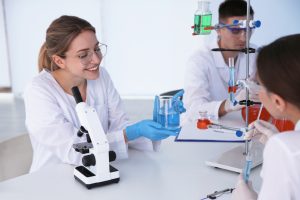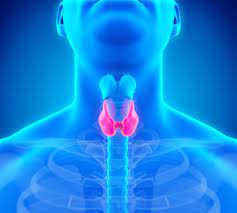Did you know: Testosterone treats depression!
The many benefits that Testosterone Replacement Therapy (TRT) delivers are well-known and time-proven in numerous studies: Increased strength, skyrocketing energy levels, a sudden roaring back to life of a long-dormant libido, relief from the everyday joint aches and pains that aging brings, the  vaporizing of the accumulated fat and pounds, and sharpened mental clarity.
vaporizing of the accumulated fat and pounds, and sharpened mental clarity.
However, that’s not all that testosterone restoration achieves. Recently, more medical professionals have seen that testosterone restoration has helped alleviate or even cure a crippling and cruel mental disorder: clinical depression.
Depression is a severe condition. Depression is often overlooked but ignoring it is a serious, fatal oversight. Depression kills! Here are a few of the many symptoms of this crippling affliction:
- Isolation
- Helplessness
- Guilt
- A feeling of worthlessness and life is not worth living
- Paralyzing apathy
- Low self-esteem
- A complete collapse of energy and motivation
- Thoughts of suicide or self-harm
- Loss of appetite
- Non-existent libido
The point is this: depression cannot be ignored! If left untreated, the results are debilitating and all-too-often fatal.
However, the standard cures for depression may be worse than the condition itself.
To treat this condition, psychiatrists often turn to medications designed to regulate the chemicals in the brain. Antidepressants are Selective Serotonin Reuptake Inhibitors (SSRIs), Serotonin Norepinephrine Reuptake Inhibitors (SNRIs), tricyclic antidepressants (TCAs), and monoamine oxidase inhibitors (MAOIs).
To be fair, these drugs have helped many come back from the dark depths of depression and regain their former identity. But they also come with a list of potential side effects such as;
- Headaches
- Drowsiness
- Insomnia
- Erectile Dysfunction
- Dry mouth
- Nausea
- Agitation
- Skyrocketing blood pressure
- A total collapse of sex drive
- Heart palpitations
- Weight gain
- Blurred vision
- Chronic Fatigue
- And more...countless more...too many to list
So what is the answer? Depression must be conquered or at least controlled. But it becomes a trade-off with balancing the side effects of the medications vs. letting depression continue untreated.
Here is where testosterone can come to the rescue
As mentioned above, medical professionals have a broad range of pharmaceuticals to treat depression. But they often overlook the relief from the horrific symptoms of depression that can be eased with Testosterone Replacement Therapy (TRT).
The link between depression and low testosterone levels (“Low-T”) has been established in countless studies, making perfect sense. More than 2,500 years ago, the ancient Greeks knew that the mind is not separate from the body; they are intimately connected, and a healthy body leads to a healthy mind.
Other studies have uncovered the connection between the endocrine system and mental health. Simply put, our hormones work as a team, and a deficiency in one affects the intricate balance of the entire system.
For example, a drop in our thyroid hormones wreaks havoc on our nervous system and causes weight gain, fatigue, and mood swings. The same can be said of most other hormones, including testosterone.
be said of most other hormones, including testosterone.
In the past, mental health professionals were extremely quick on the draw with anti-depressant prescriptions. This trend accelerated to the point that some felt physicians were prescribing powerful anti-depressant medications to control slight mood swings that would have previously been normal.
In 2010, research was conducted on 5639 subjects and concluded that antidepressant use in America had exploded by a whopping 400% in the previous decade! If that weren’t bad enough, consider this: the study also found that more than 10% of all Americans over age 12 were prescribed antidepressants.
But the times are changing.
The good news is that many physicians are associating depression with Low-T. Countless studies have linked depression with low testosterone levels. In a study of 200 men, 56% were diagnosed with symptoms of depression, and more than half of the participants had Low-T, with all of the accompanying side effects: erectile dysfunction, mental fog, insomnia, and irritability.
The good news is after beginning a testosterone replacement regimen, nearly all of the subjects reported better moods and an improvement in their other adverse medical issues.
Here is another example of how the endocrine system functions as a team. The thyroid gland is an unsung hero that secretes and stores hormones critical to almost every organ and gland in the entire body and plays an especially crucial role in regulating our metabolism.
One of the hormones produced by the thyroid gland is the Thyroid Stimulating Hormone (TSH), also referred to as thyrotropin. The TSH hormone produces the thyroid gland's production of thyroxine (T4), which is vital to regulating our energy metabolism.
T4 then moves through the blood to specific cells and converts to a more active form of triiodothyronine (T3) which is the engine that keeps our metabolisms running smoothly.
When the thyroid system is not operating efficiently, all sorts of problems arise, including depression and mood swings.
Here is where testosterone once again comes to the rescue. As with many other afflictions, low testosterone levels have been linked to hypothyroidism (low thyroid function).
The problem stems from hypothyroidism lowering testosterone by affecting the release of Luteinizing Hormone (LH). When men have a sluggish thyroid, LH cannot perform its duties, including its primary function: stimulating testosterone production in male gonads.
This condition may result in a vicious circle: less testosterone produced = more impaired thyroid function = less LH.
Sadly, the link between a smooth, well-balanced endocrine system and depression is often overlooked. This is especially the case for men who undergo androgen deprivation therapy to treat prostate cancer. When TRT is administered along with the cancer treatment, the patients often experience mood improvements and an easing of depression symptoms.
Other mental disorders have been traced to the endocrine system. Again, many physicians prescribe antidepressants in massive doses that can result in severe side effects while downplaying or ignoring the role that out-of-balance hormones play in many of these disorders.
Your hormone levels are so crucial to your well-being
At our clinics, we believe in a holistic approach to optimal health and longevity. Before we begin any type of testosterone replacement regimen, we will take a complete medical history and blood test to determine if Low-T is the problem.
 We use a deductive method of ruling out other causes for the present physical, mental, and emotional symptoms.
We use a deductive method of ruling out other causes for the present physical, mental, and emotional symptoms.
Next, we will craft a nutrition regimen, exercise, stress reduction, nutritional supplements, sleep, and tips on living in a toxin-free environment. These lifestyle improvements will set the table for our hormone therapies to deliver the maximum benefit to you.
We will administer the proper testosterone balance and, if needed, thyroid medicines to ensure your endocrine system is operating on cruise control as it is intended.
Contact us for a FREE, no-obligation discussion of the powerful, life-enhancing benefits of Testosterone Replacement Therapy (TRT).
References
- https://www.ncbi.nlm.nih.gov/books/NBK562219/
- https://thyroidadvisor.com/relationship-testosterone-levels-thyroid/
- https://thyroidsupplementreviews.com/testosterone-thyroid-relationship/
- 0001 What Are Normal Testosterone Levels For Men And Women Throughout Life? [Last Updated On: February 14th, 2025] [Originally Added On: May 26th, 2020]
- 0002 Top Tips For Boosting Testosterone Naturally [Last Updated On: September 27th, 2025] [Originally Added On: May 27th, 2020]
- 0003 The Testosterone Factor [Last Updated On: October 28th, 2025] [Originally Added On: May 28th, 2020]
- 0004 Testosterone Can Help Relieve The Menopause Symptom Of Hot Flashes [Last Updated On: February 14th, 2025] [Originally Added On: May 29th, 2020]
- 0005 How Does Low Testosterone Cause Infertility? [Last Updated On: February 8th, 2025] [Originally Added On: May 30th, 2020]
- 0006 The Benefits Of Testosterone Therapy For Prostate Cancer [Last Updated On: February 14th, 2025] [Originally Added On: May 31st, 2020]
- 0007 Is Testosterone Replacement A Valid Diabetes Treatment? [Last Updated On: February 15th, 2025] [Originally Added On: June 1st, 2020]
- 0008 Testosterone Shock Therapy May Be An Effective Prostate Cancer Treatment [Last Updated On: February 5th, 2025] [Originally Added On: June 2nd, 2020]
- 0009 Testosterone Replacement Therapy Is Safe For The Heart [Last Updated On: February 14th, 2025] [Originally Added On: June 3rd, 2020]
- 0010 Testosterone Replacement Therapy [Last Updated On: October 22nd, 2025] [Originally Added On: June 4th, 2020]
- 0011 Testosterone Patches [Last Updated On: February 8th, 2025] [Originally Added On: June 5th, 2020]
- 0012 Testosterone Overview [Last Updated On: February 13th, 2025] [Originally Added On: June 6th, 2020]
- 0013 Testosterone Levels And Making Money [Last Updated On: September 10th, 2025] [Originally Added On: June 7th, 2020]
- 0014 Testosterone Enanthate [Last Updated On: September 9th, 2025] [Originally Added On: June 8th, 2020]
- 0015 Increased Awareness Of Low-t Helps Men Live Healthier Lives [Last Updated On: February 7th, 2025] [Originally Added On: June 9th, 2020]
- 0016 How Does Low-t Lead To Erectile Dysfunction? [Last Updated On: February 7th, 2025] [Originally Added On: June 10th, 2020]
- 0017 Testosterone Basics [Last Updated On: February 6th, 2025] [Originally Added On: June 11th, 2020]
- 0018 How Does Testosterone Impact Prostate Health? [Last Updated On: February 6th, 2025] [Originally Added On: June 12th, 2020]
- 0019 Testosterone And Other Sex Hormones Impact Asthma Response Dependent On Sex [Last Updated On: February 5th, 2025] [Originally Added On: June 13th, 2020]
- 0020 Recognizing Subtle Symptoms Of Testosterone Deficiency [Last Updated On: February 4th, 2025] [Originally Added On: June 15th, 2020]
- 0021 Testosterone Trivia [Last Updated On: February 4th, 2025] [Originally Added On: June 16th, 2020]
- 0022 The Health Benefits Of Testosterone And Sleep Are Interconnected [Last Updated On: February 3rd, 2025] [Originally Added On: June 17th, 2020]
- 0023 How Can I Restore My Testosterone Production Naturally? [Last Updated On: September 4th, 2025] [Originally Added On: June 18th, 2020]
- 0024 Low-t Quiz [Last Updated On: September 3rd, 2025] [Originally Added On: June 19th, 2020]
- 0025 Low Testosterone Might Mean Poor Sleep Need Testosterone Hormone Injections [Last Updated On: September 2nd, 2025] [Originally Added On: June 20th, 2020]
- 0026 Low Testosterone Contributes To Frailty With Age [Last Updated On: September 1st, 2025] [Originally Added On: June 21st, 2020]
- 0027 Low Testosterone Affects A Third Of Young Men With Type 2 Diabetes [Last Updated On: August 31st, 2025] [Originally Added On: June 22nd, 2020]
- 0028 Japanese Testosterone Study Proves Physical And Psychological Benefits [Last Updated On: August 30th, 2025] [Originally Added On: June 23rd, 2020]
- 0029 Intramuscular Injections Are Safer Procedures [Last Updated On: August 29th, 2025] [Originally Added On: June 24th, 2020]
- 0030 Injecting Testosterone (im) [Last Updated On: October 24th, 2025] [Originally Added On: June 25th, 2020]
- 0031 Injectable Testosterone And Testosterone Cream [Last Updated On: February 14th, 2025] [Originally Added On: June 26th, 2020]
- 0032 Indiana Jones Vs. Rambo (hgh Testosterone) [Last Updated On: August 28th, 2025] [Originally Added On: June 27th, 2020]
- 0033 How Much Does Testosterone Control Men's Behavior? [Last Updated On: August 27th, 2025] [Originally Added On: June 28th, 2020]
- 0034 Getting To The Bottom Of Low-t Under-reported Sources Of Testosterone Deficiency [Last Updated On: February 14th, 2025] [Originally Added On: June 29th, 2020]
- 0035 How To Manage And Overcome Testosterone Deficiency [Last Updated On: August 26th, 2025] [Originally Added On: June 30th, 2020]
- 0036 Clomiphene Low-testosterone Andropause Treatment [Last Updated On: February 3rd, 2025] [Originally Added On: July 1st, 2020]
- 0037 How Do Synthetic Chemicals Impact Testosterone Secretion? [Last Updated On: August 18th, 2025] [Originally Added On: July 2nd, 2020]
- 0038 Interest In Bio-identical Testosterone Is Skyrocketing [Last Updated On: August 25th, 2025] [Originally Added On: July 3rd, 2020]
- 0039 Axiron Spray-application Testosterone Replacement Therapy [Last Updated On: August 24th, 2025] [Originally Added On: July 4th, 2020]
- 0040 Andropause: Male Menopause [Last Updated On: September 14th, 2025] [Originally Added On: July 5th, 2020]
- 0041 Testosterone Deficiency Treatment Options [Last Updated On: August 21st, 2025] [Originally Added On: July 6th, 2020]
- 0042 The Facts About Testosterone Hrt For Low-t [Last Updated On: August 22nd, 2025] [Originally Added On: July 7th, 2020]
- 0043 Misconceptions About Testosterone Replacement Therapy [Last Updated On: August 23rd, 2025] [Originally Added On: July 8th, 2020]
- 0044 Testosterone Replacement Therapy Facts And Myths [Last Updated On: October 4th, 2025] [Originally Added On: July 9th, 2020]
- 0045 Testosterone Injections For Testosterone Deficiency [Last Updated On: September 18th, 2022] [Originally Added On: July 10th, 2020]
- 0046 Testosterone Replacement Therapy May Help Aging Males Prevent Diabetes [Last Updated On: August 19th, 2025] [Originally Added On: July 11th, 2020]
- 0047 The Benefits Of Testosterone Replacement Therapy For Women [Last Updated On: August 17th, 2025] [Originally Added On: July 13th, 2020]
- 0048 How Can Testosterone Hrt Improve My Life Via Quality Low-t Treatments [Last Updated On: September 13th, 2025] [Originally Added On: July 14th, 2020]
- 0049 Frequently Asked Questions About Testosterone [Last Updated On: August 20th, 2025] [Originally Added On: July 15th, 2020]
- 0050 Bio-identical Testosterone Cypionate Injections [Last Updated On: August 16th, 2025] [Originally Added On: July 16th, 2020]
- 0051 All About Testosterone Creams [Last Updated On: August 13th, 2025] [Originally Added On: July 17th, 2020]
- 0052 Low Testosterone Treatment Protocols [Last Updated On: April 1st, 2025] [Originally Added On: July 19th, 2020]
- 0053 Testosterone Deficiency Drains Your Energy [Last Updated On: February 13th, 2025] [Originally Added On: July 21st, 2020]
- 0054 What Is Testosterone? [Last Updated On: August 11th, 2025] [Originally Added On: July 23rd, 2020]
- 0055 Eleven Signs Of Testosterone Deficiency [Last Updated On: March 30th, 2025] [Originally Added On: July 26th, 2020]
- 0056 Hypertension-Associated Cardiovascular Risks Increase Due To Both Low-T And High Testosterone [Last Updated On: February 18th, 2025] [Originally Added On: April 22nd, 2021]
- 0057 Everything to Know About Androgel [Last Updated On: March 27th, 2025] [Originally Added On: July 8th, 2021]
- 0058 Kinds of Testosterone Therapy – Which Is Right for You? [Last Updated On: March 21st, 2025] [Originally Added On: August 28th, 2021]
- 0059 This Study Says High Protein Diet May Suppress Testosterone Levels [Last Updated On: February 20th, 2025] [Originally Added On: March 28th, 2022]
- 0060 Testosterone and Estrogen Deficiency Associated With Increased Risk of Rotator Cuff Surgery [Last Updated On: February 14th, 2025] [Originally Added On: April 26th, 2022]
- 0061 Low Testosterone Accelerates Aging [Last Updated On: March 20th, 2025] [Originally Added On: May 3rd, 2022]
- 0062 Low Testosterone Endangers Your Health [Last Updated On: February 14th, 2025] [Originally Added On: May 14th, 2022]
- 0063 Testosterone Helps Modulate Immune Activity in the Digestive System [Last Updated On: February 14th, 2025] [Originally Added On: May 18th, 2022]
- 0064 Benefits of Fenugreek – Boost Testosterone and More [Last Updated On: February 14th, 2025] [Originally Added On: May 23rd, 2022]
- 0065 Testicle Tanning: What is Tucker Carlson Talking About? [Last Updated On: April 16th, 2025] [Originally Added On: June 3rd, 2022]
- 0066 Using Testosterone to Combat Memory Issues in Diabetics [Last Updated On: February 14th, 2025] [Originally Added On: August 16th, 2022]
- 0067 About 40% of Men Have Low-T – and it Doubles the Risk of Severe COVID [Last Updated On: February 25th, 2025] [Originally Added On: September 21st, 2022]
- 0068 The Foods To Boost Your Testosterone…And The Foods To Avoid [Last Updated On: November 4th, 2025] [Originally Added On: September 30th, 2022]
- 0069 Tlando Testosterone: An Innovative Oral Therapy for Low-T [Last Updated On: November 3rd, 2025] [Originally Added On: October 1st, 2022]
- 0070 Testosterone Replacement Therapy (TRT) Explained [Last Updated On: April 8th, 2025] [Originally Added On: October 12th, 2022]
- 0071 Examining The Link Between Testosterone and Employability [Last Updated On: February 18th, 2025] [Originally Added On: November 8th, 2022]
- 0072 Standard Measure of Low Testosterone Doesn't Apply to Young Men [Last Updated On: March 12th, 2025] [Originally Added On: November 8th, 2022]
- 0073 Surprising Things that Cause Men’s Crashing Testosterone [Last Updated On: March 17th, 2025] [Originally Added On: January 5th, 2023]
- 0074 Understanding the Correlation between Testosterone Levels and Job Performance [Last Updated On: February 9th, 2025] [Originally Added On: February 9th, 2025]
- 0075 Link between Low Testosterone and Severe COVID Symptoms in Men [Last Updated On: February 12th, 2025] [Originally Added On: February 12th, 2025]
- 0076 The Good Job Grip: Is Testosterone the Key? [Last Updated On: February 13th, 2025] [Originally Added On: February 13th, 2025]
- 0077 Importance of Nutritional Balance in a Healthy Diet [Last Updated On: February 14th, 2025] [Originally Added On: February 14th, 2025]
- 0078 Invigorating Power of the Fenugreek Plant: A Natural Testosterone Energizer and More [Last Updated On: February 14th, 2025] [Originally Added On: February 14th, 2025]
- 0079 Unlocking the Testosterone Treasure: A Panacea for Cognitive Woes in Diabetic Patients [Last Updated On: February 14th, 2025] [Originally Added On: February 14th, 2025]
Word Count: 1129






